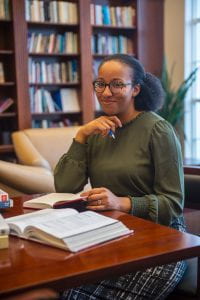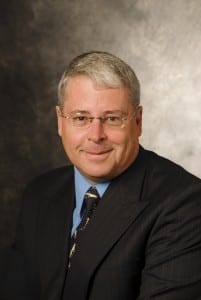Teresa Valerio Parrot, a higher education doctoral student in Simmons, offers a good historical perspective in a Washington Post Op-ed on efforts to reform college athletics for a century. Despite these, nothing has really happened, she says. “Real change and reform will occur only when leaders are willing to rethink this prioritization of profits and turn down the endorsement and media dollars associated with competition.” Read the article here.
Category: General News & Announcements
Dallas Innovates Offers Insights from Five Simmons Professors on Closing Learning Gaps Caused by Pandemic
 To combat classroom learning losses stemming from the pandemic, five SMU Simmons professors reflect on their own research to advise Pre-K-12 school leaders on how to build up students’ knowledge.
To combat classroom learning losses stemming from the pandemic, five SMU Simmons professors reflect on their own research to advise Pre-K-12 school leaders on how to build up students’ knowledge.
Drs. Jill Allor, Diane Gifford, Leanne Ketterlin Geller, Candace Walkington, and Annie Wilhelm jump in with ideas published in Dallas Innovate.
Reading experts Allor and Gifford emphasize basic skills. As Gifford says, “Students should learn the foundational skills necessary to read by the end of second grade. When students have gaps in their learning, they are likely to struggle until those gaps are filled. Even before COVID-19, 65 percent of fourth-graders in 2019 were reading below grade level.”
Allor says phonics is essential for reading comprehension. “Children who have difficulty reading most often have trouble with the ability to understand how letters relate to sounds,” she says. “Research shows that students who struggle most often need more systematic and explicit phonics instruction. Some very popular reading programs are not consistent with research. If schools use these programs for intervention, many students will continue to struggle.”
Math researcher Leanne Ketterlin Geller believes math requires more dedicated time. “If students miss a concept—addition, for example—it will hinder them from understanding concepts they’ll learn later, like multiplication,” she says. “Students will need more math instruction than the standard time allotment if they are to catch up.”
Annie Wilhelm adds that it is time to teach math in a new way, “The current model of teaching math as a series of disjointed topics limits students’ development of conceptual understanding. Instead of being taught a new set of procedures to master, students need to wrestle with how new ideas might fit with things they already understand.”
Using technology helps appeal to students’ personal interests, and that is important, says Candace Walkington. “Research shows that the most effective math instruction is relevant to students’ lives and interests and based in real-world problems.”In-person teaching can use technology to re-ignite students’ interest by using augmented reality, virtual reality, artificial intelligence, and game-based learning to simulate real life in math problems”
Baker Testifies Before US Senate on Student Debt Burden and Effect on Borrowers, Racial Justice, and Economy

Dominique Baker, assistant professor of education policy, was asked to testify about student debt before the US Senate Committee on Banking, Housing, and Urban Affairs, chaired by Elizabeth Warren, April 13. Baker’s statements illustrated the burden of student debt upon the economy and its impact on racial justice.
COVID-19 may have made inequities clearer, she said, but the federal financial aid system has for a long time disproportionately impacted students of color, low-income students, and students from other underrepresented communities in higher education.
She also addressed student loan cancellation. “Large-scale debt forgiveness could not only avert a potential wave of student loan defaults and allow for greater participation in the consumer market but also could encourage students who have left college to re-enroll, a current goal sought by many education experts,” she added.
The implicit promise of finding good jobs based on borrowing money and working hard in college doesn’t often deliver, she said.
To watch her testimony, click here and forward to 2:14:00 and 2:28:00 marks in the video.
Click here for printed testimony.
Sherril English Provides Expertise on Pandemic’s Impact on Students Academic and Mental Well-Being

As school administrations discuss and media cover how the pandemic affects students academically and emotionally, educators are discerning what can help students the most.
Teaching & Learning’s Assistant Clinical Professor Sherril English provided her insights from over thirty years of educational experience as she joined a panel discussion framed by equity and inclusion. Sponsored by Building Solutions, the virtual panel advised parents to help their students find new learning opportunities outside of class and the home.
English counsels students to volunteer, shadow a professional or get jobs. Learn more at KERA and at NBC5.
Placing Cutting-Edge Research into Action is a Priority for Simmons and SMU
 On March 29, SMU published an article in FWD DFW, a supplement in The Dallas Morning News, about the University’s investments in research and data science. The Simmons School was highlighted along with other research areas of the University.
On March 29, SMU published an article in FWD DFW, a supplement in The Dallas Morning News, about the University’s investments in research and data science. The Simmons School was highlighted along with other research areas of the University.
Dean Stephanie L. Knight said, “The Simmons School of Education and Human Development has always been a nontraditional institution. We take great pride in conducting cutting-edge research and then putting the results of that research into action. “Several years ago, we were approached by Toyota about creating a project to benefit the greater Dallas community. Toyota awarded us a $2 million, three-year planning grant to establish a pre-K through eight school in West Dallas focused on a STEM curriculum. Working with Toyota and Dallas ISD, our objective is to prepare students for jobs and college in STEM-related fields. We expect it to be a center for research and professional development that will not only benefit our students locally but also students throughout the country. Toyota also hopes that the school model can be taken to other communities to promote STEM education.”
Simmons Continues to Rise in U.S. News & World Report Rankings for Best Graduate Schools in Education
 SMU’s Annette Caldwell Simmons School of Education and Human Development continues on an upward trajectory in new rankings determined by U.S. News & World Report. Simmons climbs from 63 to 59 among public and private graduate schools of education in the ranking released March 30 for 2022.
SMU’s Annette Caldwell Simmons School of Education and Human Development continues on an upward trajectory in new rankings determined by U.S. News & World Report. Simmons climbs from 63 to 59 among public and private graduate schools of education in the ranking released March 30 for 2022.
Within the ranks of national private universities, Simmons also made gains, moving from the top 25 schools to the top 15 schools.
“This year, the faculty’s productivity in conducting research impacted our school significantly, leading Simmons to be eleventh in funded research per faculty member ($327,700) among national private colleges of education,” says Leon Simmons Endowed Dean Stephanie L. Knight.
Only two Texas universities have an overall higher ranking than SMU Simmons–UT Texas at Austin and Texas A&M at College Station.
“Simmons educators understand the importance of pulling together and looking for ways to improve outcomes, so the future can be more secure for children and families,” Knight says. “I am proud of our research faculty, supportive staff, and students who continue to raise the bar for scholarship and evidence-based practices.”
To rank schools of education, U.S. News & World Report considers measures of academic quality, including faculty resources, student selectivity, doctoral degrees granted, in addition to peer assessment scores and research activity. Rankings for 2022 were assessed for 277 schools.
Baker Recognized with Early Career Award for Outstanding Research in Ed Policy
Dominique Baker received the 2021 Early Career Award from the Association for Education Finance and Policy (AEFP). Baker is an assistant professor of education policy in SMU’s Annette Caldwell Simmons School of Education and Human Development.
 Each year, AEFP, a non-profit academic and professional organization, gives its Early Career Award to a junior scholar who shows an exemplary early career trajectory and whose research substantially contributes to the field of education finance and policy.
Each year, AEFP, a non-profit academic and professional organization, gives its Early Career Award to a junior scholar who shows an exemplary early career trajectory and whose research substantially contributes to the field of education finance and policy.
Baker received the award in March at the association’s annual conference. She also received a $1,000 award for the promise and contributions she’s shown to the field.
Baker joined SMU (Southern Methodist University) in 2016. Her research focuses on how education policy affects and shapes the access and success of minoritized students in higher education. She primarily investigates student financial aid, affirmative action and admissions policies, as well as policies that influence the ability to create an inclusive and equitable campus climate.
Her research has been published in a variety of journals, including the American Educational Research Journal, Educational Evaluation and Policy Analysis, Journal of Higher Education, Journal of College Student Development, and Teachers College Record. Her work and expertise have also been highlighted by The New York Times, The Washington Post, National Public Radio, The Chronicle of Higher Education, and Inside Higher Ed, among others.
“I’m delighted to have my work recognized by AEFP,” Baker says. “Education policy has the ability to transform lives, but only if thoughtfully constructed based on evidence that includes the experiences of the folks directly impacted. I look forward to continuing to promote justice by focusing on the ways that policies distribute power and resources.”
National Academy of Education Inducts Richard Duschl for Contributions in Science Education
 Professor Richard Duschl, a leader in SMU’s Lyle School of Engineering known for his continuing contributions to science education through research, has been elected a member of the National Academy of Education (NAEd).
Professor Richard Duschl, a leader in SMU’s Lyle School of Engineering known for his continuing contributions to science education through research, has been elected a member of the National Academy of Education (NAEd).
Duschl is the Executive Director of SMU Lyle’s Caruth Institute for Engineering Education and also has an appointment in SMU’s Simmons School of Education & Human Development in the Teaching and Learning Department.
“Induction into a National Academy representing your field of expertise is the pinnacle of achievement in one’s career,” Marc P. Christensen, dean of the Lyle School of Engineering, said. “When we recruited Prof. Duschl to lead the Caruth Institute for Engineering Education, we knew he was one of the most distinguished researchers in the field education. We are so pleased that he has been formally recognized in this way.”
Duschl has been President of NARST, the International Association for Science Education Research. He also served as director of the Division for Research on Learning at the National Science Foundation and chaired the U.S. Department of Education National Resource Center report, “Taking Science to School: Learning and Teaching Science in Grades K-8” (National Academies Press, 2007).
Before joining SMU in 2018, his past appointments included the Waterbury Chair at Penn State University, Graduate School of Education at Rutgers University, Chair of Science Education at King’s College London, Vanderbilt University, the University of Pittsburgh, Hunter College-CUNY and the University of Houston. Duschl taught high school earth science in Charles County, Md. and middle school science and math in East Lansing, Mich.
In 2014 Duschl was awarded the NARST Distinguished Career in Research Award. He served for 10 years as the editor of “Science Education,” an international journal of research and scholarship, and was editor of the Teachers College Press book series “Ways of Knowing in Science.”
Duschl is one of 22 people selected on March 11 to join the National Academy of Education.
Other new members include:
- Megan Bang, Spencer Foundation/Northwestern University
- Daryl Chubin, Independent Consultant and Founding Co-Director, Understanding Interventions
- Colette Daiute, The City University of New York, Graduate Center
- Kenneth Frank, Michigan State University
- Jonathan Guryan, Northwestern University
- Shaun Harper, University of Southern California
- Kathryn Hirsh-Pasek, Temple University
- Andrew Ho, Harvard University
- Nancy Hornberger, University of Pennsylvania
- Tyrone Howard, University of California, Los Angeles
- Kent McGuire, Hewlett Foundation
- Roberta Michnick Golinkoff, University of Delaware
- Richard Milner IV, Vanderbilt University
The NAEd advances high-quality education research and its use in policy and practice. The Academy consists of U.S. members and international associates who are elected on the basis of outstanding scholarships related to education.
Texas Association of Mediators Honors Hartsell with Profession’s Highest Award
 Tom Hartsell, J.D., clinical professor in the Department of Dispute Resolution and Counseling, received the 2021 Susan C. Adams Award from the Texas Association of Mediators during its annual conference. The award is the organization’s highest recognition and honors exceptional efforts in promoting and furthering the use of mediation in the state.
Tom Hartsell, J.D., clinical professor in the Department of Dispute Resolution and Counseling, received the 2021 Susan C. Adams Award from the Texas Association of Mediators during its annual conference. The award is the organization’s highest recognition and honors exceptional efforts in promoting and furthering the use of mediation in the state.
Hartsell is a lawyer and mediator in private practice with a specialty in family law and mental health practice issues. He has been active in the mediation field since 1986. He is a co-author of “The Portable Lawyer for Mental Health Professionals, an A-Z Guide to Protecting Your Clients, Your Practice and Yourself” and “The Portable Ethicist, An A-Z Guide to Responsible Practice” published by John Wiley & Sons and is a frequent lecturer to mental health professionals and organizations.
Al Otaiba Receives Career Leadership Award from Council for Exceptional Children Division for Learning Disabilities
 The Council for Exceptional Children Division for Learning Disabilities honored Professor Stephanie Al Otaiba with the Jeannette E. Fleishner Career Leadership Award at its recent annual meeting.
The Council for Exceptional Children Division for Learning Disabilities honored Professor Stephanie Al Otaiba with the Jeannette E. Fleishner Career Leadership Award at its recent annual meeting.
The award recognizes those who have advanced the field of learning disabilities through direct services, policy development, community service, research, or organizational leadership throughout their career.
Al Otaiba is the Patsy and Ray Caldwell Centennial Chair in Teaching and Learning. Recently, the U.S. Department of Education’s Institute of Education Sciences awarded her a $1,399,721 grant for Project GROW, a kindergarten intervention. The purpose of the grant is to design a read-aloud intervention to improve kindergartners’ social and emotional vocabulary and their listening comprehension.
